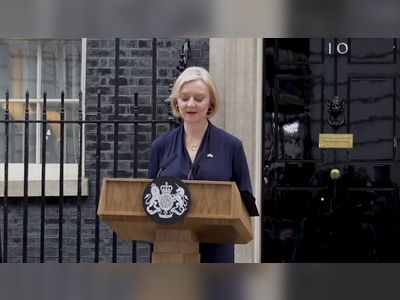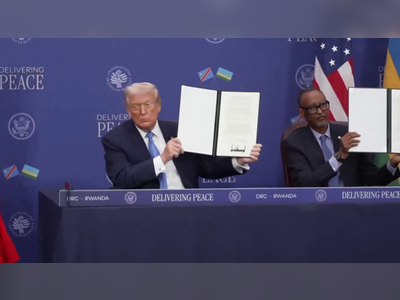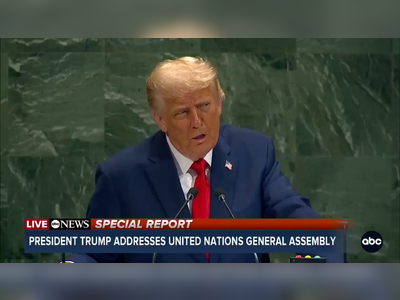California County Reinstates Mask Mandate in Health Facilities as Respiratory Illness Risk Rises
Sonoma County enacts mask requirement and stronger vaccine guidance amid concerns over COVID-19 and flu season
Sonoma County, California is reintroducing mask mandates in key health care settings and intensifying vaccine recommendations as the region braces for heightened risk from COVID-19 and other respiratory illnesses.
The interim Health Officer, Dr. Karen Smith, has issued an order that beginning November first, all individuals entering specified medical facilities—such as skilled nursing homes, dialysis and infusion centers, rehabilitation services, and designated long-term care units—must wear approved masks.
The mandate will extend through March thirty-first, 2026, and is structured to renew annually unless rescinded.
Exceptions are carved out for individuals with medical, mental health, or disability conditions preventing mask use, and for those who depend on lip reading or visual cues.
Acceptable face coverings include surgical masks, KN95, KF94, or N95 respirators; cloth masks, scarves, bandanas, and masks with unfiltered exhaust valves do not meet the order’s standards.
In tandem with the mask directive, Dr. Smith strongly urges all residents aged six months and older to receive COVID-19, influenza, and respiratory syncytial virus (RSV) vaccinations if eligible.
She also recommends that everyone—vaccinated or not—consider wearing masks in indoor public venues during periods when viral risk is elevated.
This local policy diverges from recent federal guidance issued by the Department of Health and Human Services under Secretary Robert F.
Kennedy Jr., which removed the blanket recommendation for COVID-19 vaccination among adults aged sixty-five and older and shifted younger adults toward individual consultation with health care providers.
Sonoma County’s approach reflects a more precautionary stance, especially in medical settings.
The county’s move aligns with the broader Bay Area trend of reinstating mask requirements in medical environments.
Neighboring counties such as Contra Costa, Santa Clara, Napa, San Mateo, and Santa Cruz have announced or implemented similar health care masking rules effective from November 1 through March 31.
Unlike these broader mandates, Sonoma’s order is more narrowly focused but signals a growing consensus among public health officials that seasonal respiratory threats warrant renewed protections.
Officials emphasize that the measure is not a broad public mask mandate but is limited to health care settings where vulnerable populations are more likely to face harm.
As winter approaches, the success of the policy will hinge on the public’s compliance, health care capacity, and the ability to adapt if viral transmission intensifies.
The interim Health Officer, Dr. Karen Smith, has issued an order that beginning November first, all individuals entering specified medical facilities—such as skilled nursing homes, dialysis and infusion centers, rehabilitation services, and designated long-term care units—must wear approved masks.
The mandate will extend through March thirty-first, 2026, and is structured to renew annually unless rescinded.
Exceptions are carved out for individuals with medical, mental health, or disability conditions preventing mask use, and for those who depend on lip reading or visual cues.
Acceptable face coverings include surgical masks, KN95, KF94, or N95 respirators; cloth masks, scarves, bandanas, and masks with unfiltered exhaust valves do not meet the order’s standards.
In tandem with the mask directive, Dr. Smith strongly urges all residents aged six months and older to receive COVID-19, influenza, and respiratory syncytial virus (RSV) vaccinations if eligible.
She also recommends that everyone—vaccinated or not—consider wearing masks in indoor public venues during periods when viral risk is elevated.
This local policy diverges from recent federal guidance issued by the Department of Health and Human Services under Secretary Robert F.
Kennedy Jr., which removed the blanket recommendation for COVID-19 vaccination among adults aged sixty-five and older and shifted younger adults toward individual consultation with health care providers.
Sonoma County’s approach reflects a more precautionary stance, especially in medical settings.
The county’s move aligns with the broader Bay Area trend of reinstating mask requirements in medical environments.
Neighboring counties such as Contra Costa, Santa Clara, Napa, San Mateo, and Santa Cruz have announced or implemented similar health care masking rules effective from November 1 through March 31.
Unlike these broader mandates, Sonoma’s order is more narrowly focused but signals a growing consensus among public health officials that seasonal respiratory threats warrant renewed protections.
Officials emphasize that the measure is not a broad public mask mandate but is limited to health care settings where vulnerable populations are more likely to face harm.
As winter approaches, the success of the policy will hinge on the public’s compliance, health care capacity, and the ability to adapt if viral transmission intensifies.









